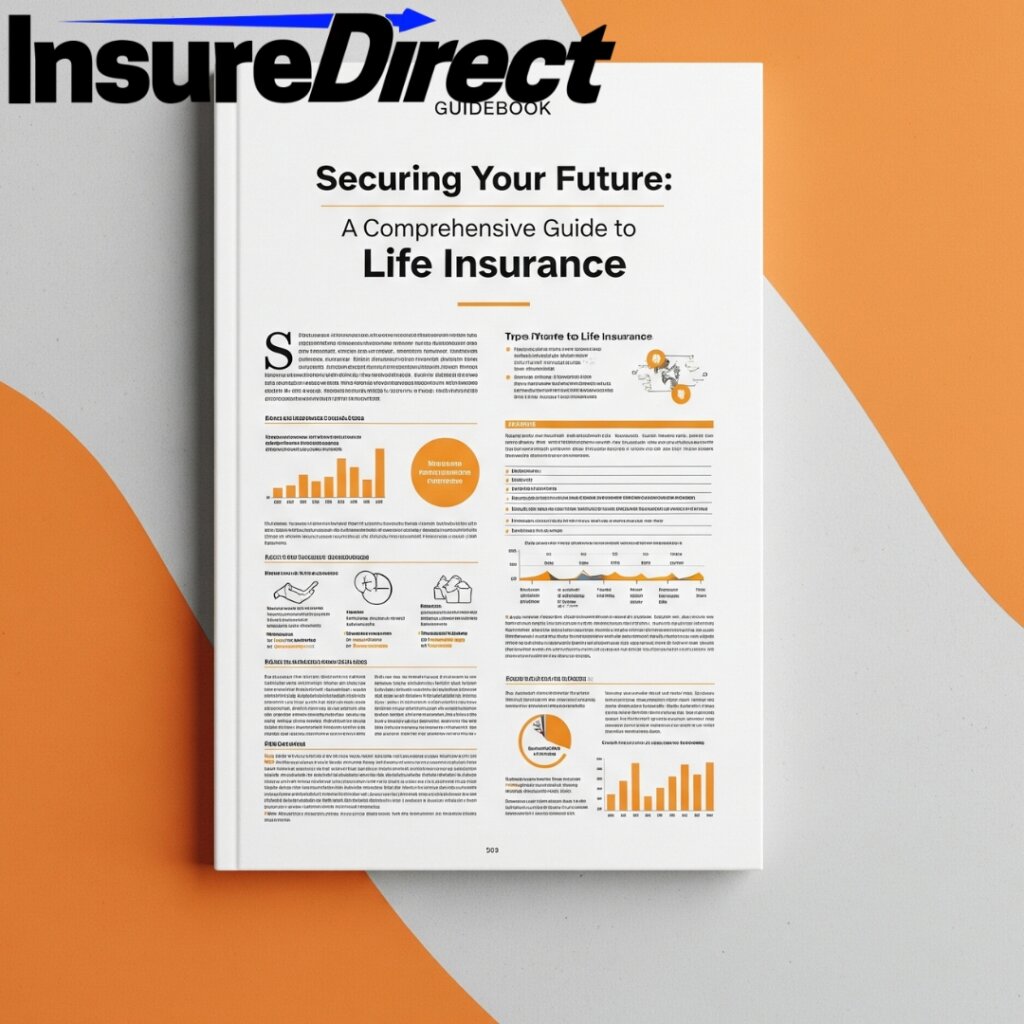Really, life is unpredictable. You can budget, plan, and dream, yet everything can change in an instant. What do I do to ensure my family’s financial stability? insurance for life. A pledge, a kind of safety net, rather than just a paper or regulation. My loved ones are still financially secure even if I’m not around.
What exactly is life insurance, then? And without making your head spin, how does it operate? To be honest, all the numbers, words, and types are perplexing. But bear with me—it’s easier than you would think. This tutorial is intended to help anyone who wants to give their family peace of mind by untangling it.
A Brief Overview of Life Insurance
It is essentially an agreement. I consistently pay my premiums. When I pass away, the corporation pledges to pay my beneficiaries a death benefit. typically free of taxes. Very helpful.
Why even bother? since there are actual stakes.
Income Replacement: My family depends on the money I make. Life insurance covers the void in the event of my untimely death. They continue to have stable finances despite bills, mortgages, and groceries.
Debt Coverage: Personal loans, credit cards, auto loans, and mortgages all remain in effect even if I’m not around. Life insurance takes care of it. A horror is not passed down to my family.
Future Plans: Life insurance pays for the things I won’t see come to pass, such the children’s college, the spouse’s retirement, and the care of dependents.
Funerals and Estate: When I pass away, the immediate expenses can be startling. That burden is taken on by insurance.
Business Continuity: Do you own a company? Life insurance keeps things functioning in the event that I pass away or helps partners purchase my share.
Permanent versus Term Life
Term and permanent are the two main types of life insurance. It’s important to understand the distinction.
Term Life:
covers a predetermined time frame (10, 20, 30 years). Simple and inexpensive. Pay set premiums; beneficiaries will receive the money if I pass away within the period. Make it through the term? Nothing. Cost increases with renewal.
Advantages:
* Inexpensive, particularly for young people; * Simple and easy to comprehend; matches short-term debts, such as mortgages or child care.
Cons:
* Has no monetary value. Coverage ends; there can be a void afterwards.
Eternal Life:
As long as I pay, I will always be covered. includes tax-free growth in cash value.
How it operates: Some premiums go toward cash value, while others go toward death benefit. I can pay out, withdraw, or borrow from it.
Advantages:
* Cash value builds up and can be used while living; * Lifetime coverage and peace of mind; * Certain policies pay dividends.
* A tool for estate planning that ensures inheritance and covers taxes.
Cons:
* More costly than term; * Complicated; alternatives may be unclear; Less death benefit per dollar in the beginning.
Permanent Insurance Types:
* * Whole Life*: Cash value increase, guaranteed death benefit, and fixed premiums * Universal Life*: Cash value increases in tandem with interest rates; flexible payments and death benefits *Variable Life*: Money placed in accounts; greater risk but possibly greater profits. *Indexed Universal Life*: Floor and ceiling protection against extremes; cash value based on market index.
What Is My Required Insurance Amount?
It depends. My earnings, debts, goals for the future, dependents, savings, and burial expenses are all important. A general rule? 10–15 times annual income, however more accurate computation is preferable. Debt, Income, Mortgage, and Education, or the “DIME” technique, aids in fine-tuning figures.
How to Apply for Coverage
First, complete the financial, health, and personal information forms. Step two: physical examination, including blood pressure and urine and blood testing. The third step is risk evaluation, or underwriting. Step 4: The insurance is issued; coverage begins with the first payment.
The Overall View
Life insurance isn’t any nonsense. It’s security, safety, and readiness. Are you discussing death? Uncomfortable. Is it worthwhile? Of course. In any case, it is invaluable to know that my family is financially secure. Take your time, consider your possibilities, comprehend your needs, and speak with a financial counselor. Make an informed decision. The future of your family depends on it.
Get in touch with InsureDirect
Corporate Home Office of InsureDirect.com, 618 South Broad Street, Lansdale, PA 19446
[contact@insuredirect.com] is the email. The email address is contact@insuredirect.com.
(800) 807-0762, extension 602

